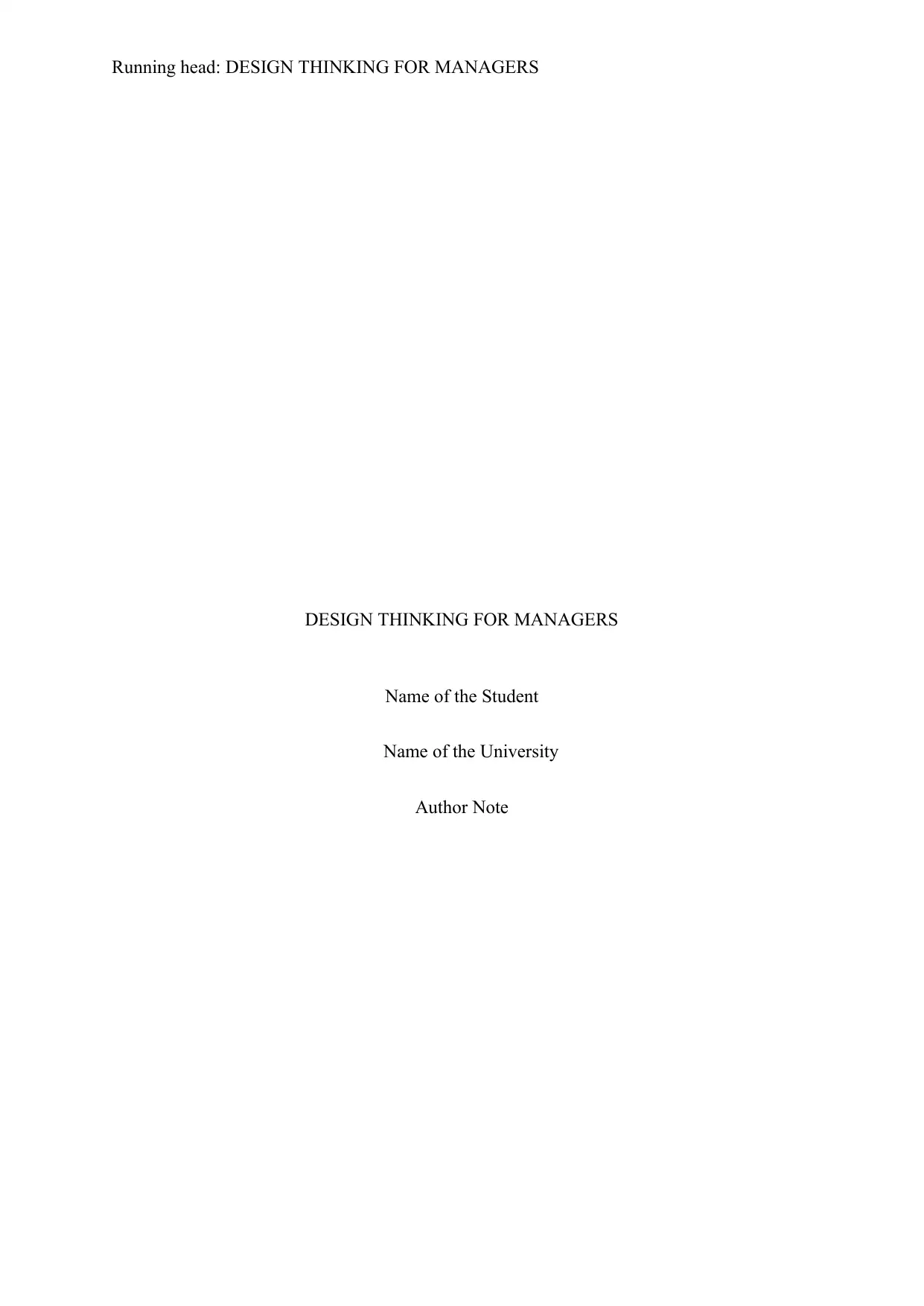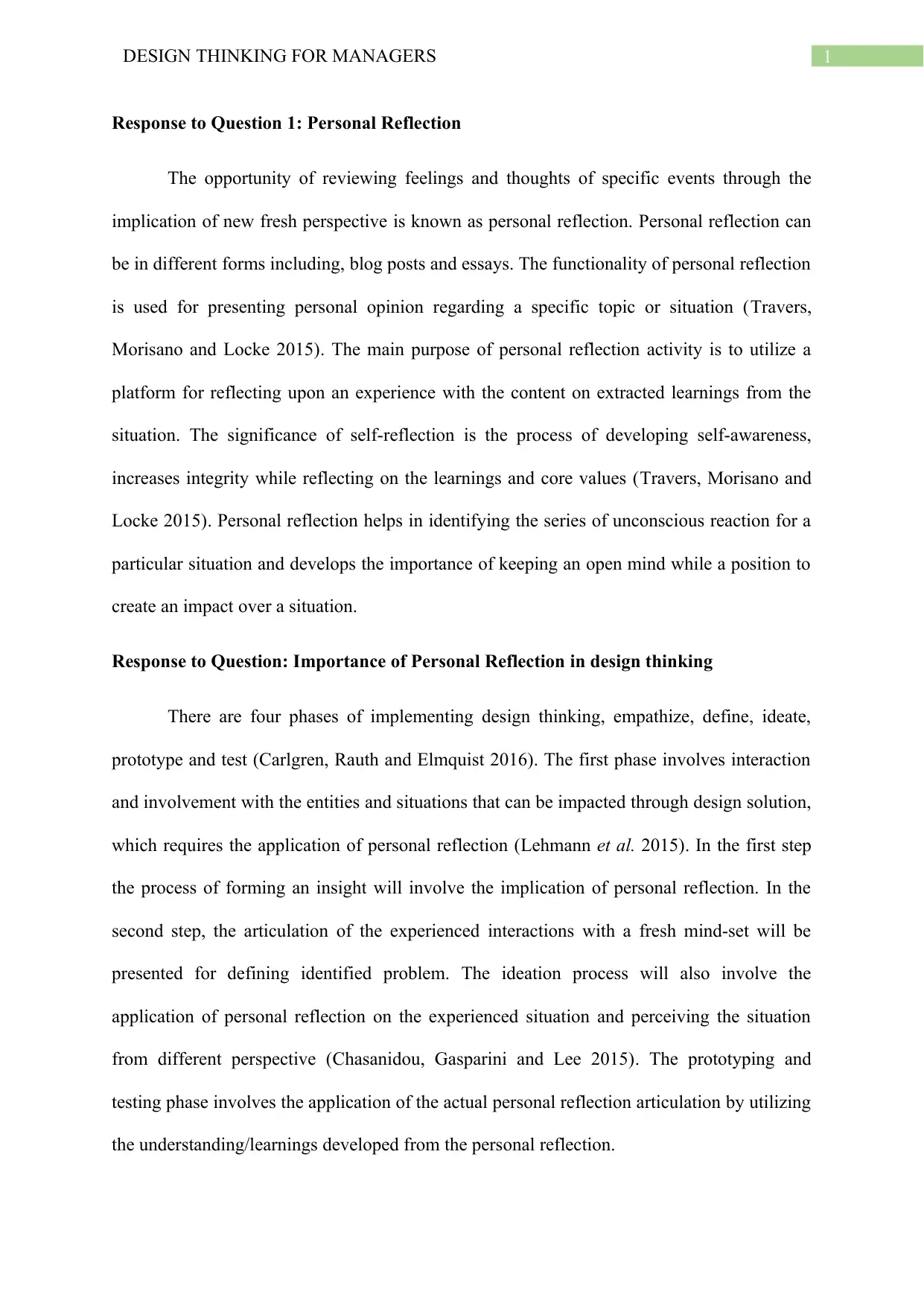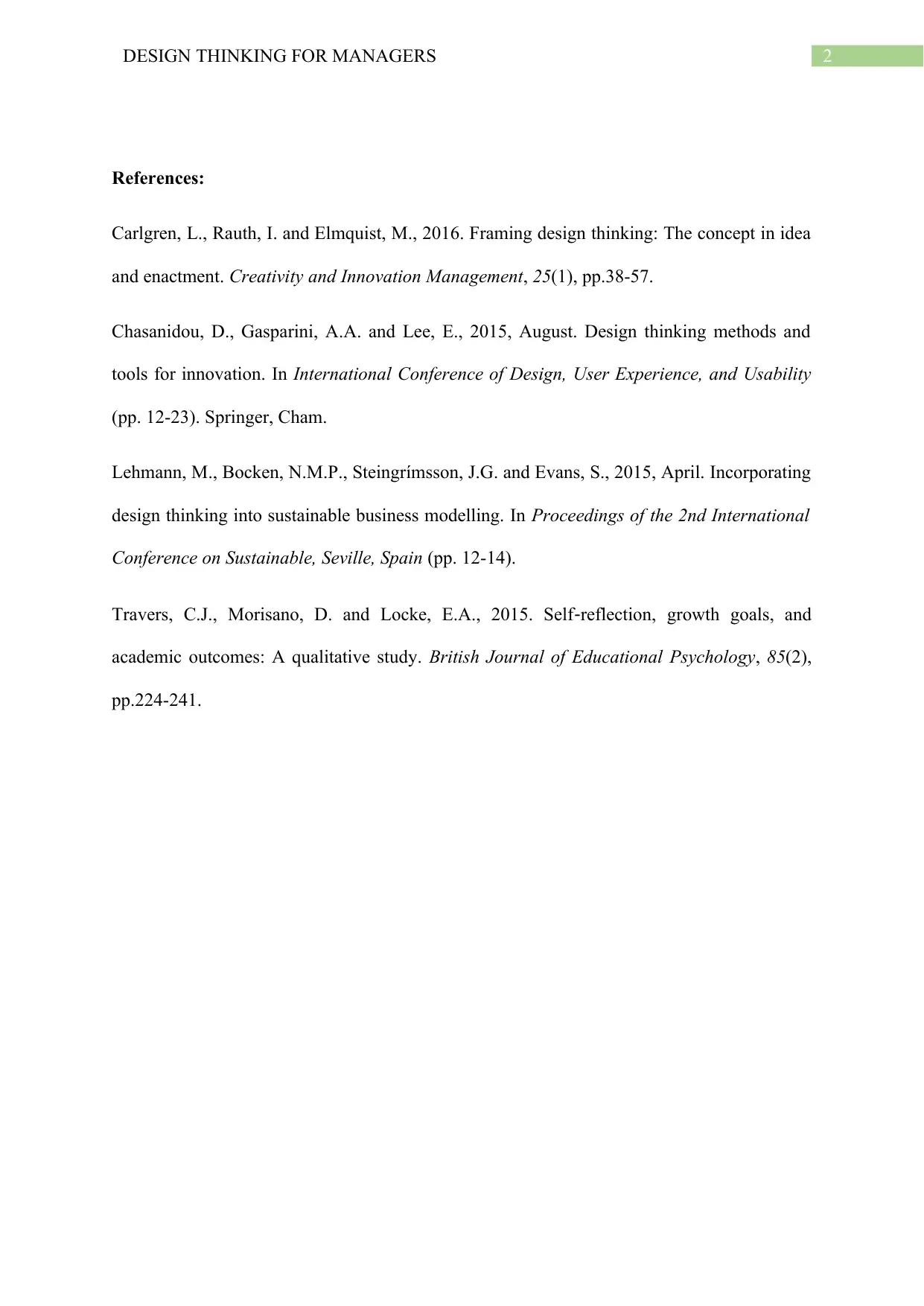University Name: Design Thinking for Managers Assignment Report
VerifiedAdded on 2022/10/06
|3
|533
|182
Report
AI Summary
This report delves into the application of design thinking principles within a managerial context. It begins by defining personal reflection and its role in understanding and interpreting experiences, emphasizing its importance in developing self-awareness and ethical considerations. The report then explores the design thinking process, highlighting the four key phases: empathize, define, ideate, prototype, and test. It emphasizes the significance of personal reflection at each stage, particularly in forming insights, articulating problems, generating ideas, and refining prototypes. References to relevant academic sources are provided to support the arguments, offering a comprehensive overview of how design thinking methodologies can enhance managerial decision-making and innovation. The report underscores the value of incorporating design thinking into sustainable business models and fostering creative solutions.
1 out of 3







![[object Object]](/_next/static/media/star-bottom.7253800d.svg)